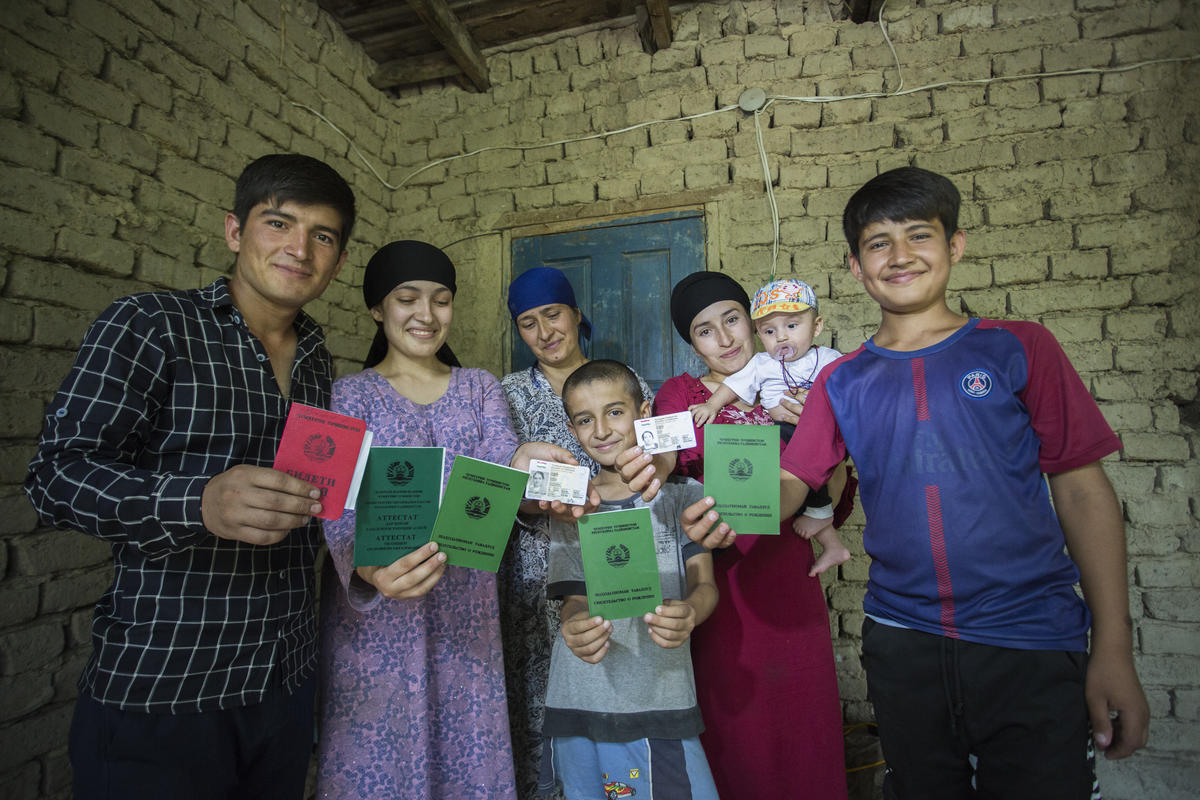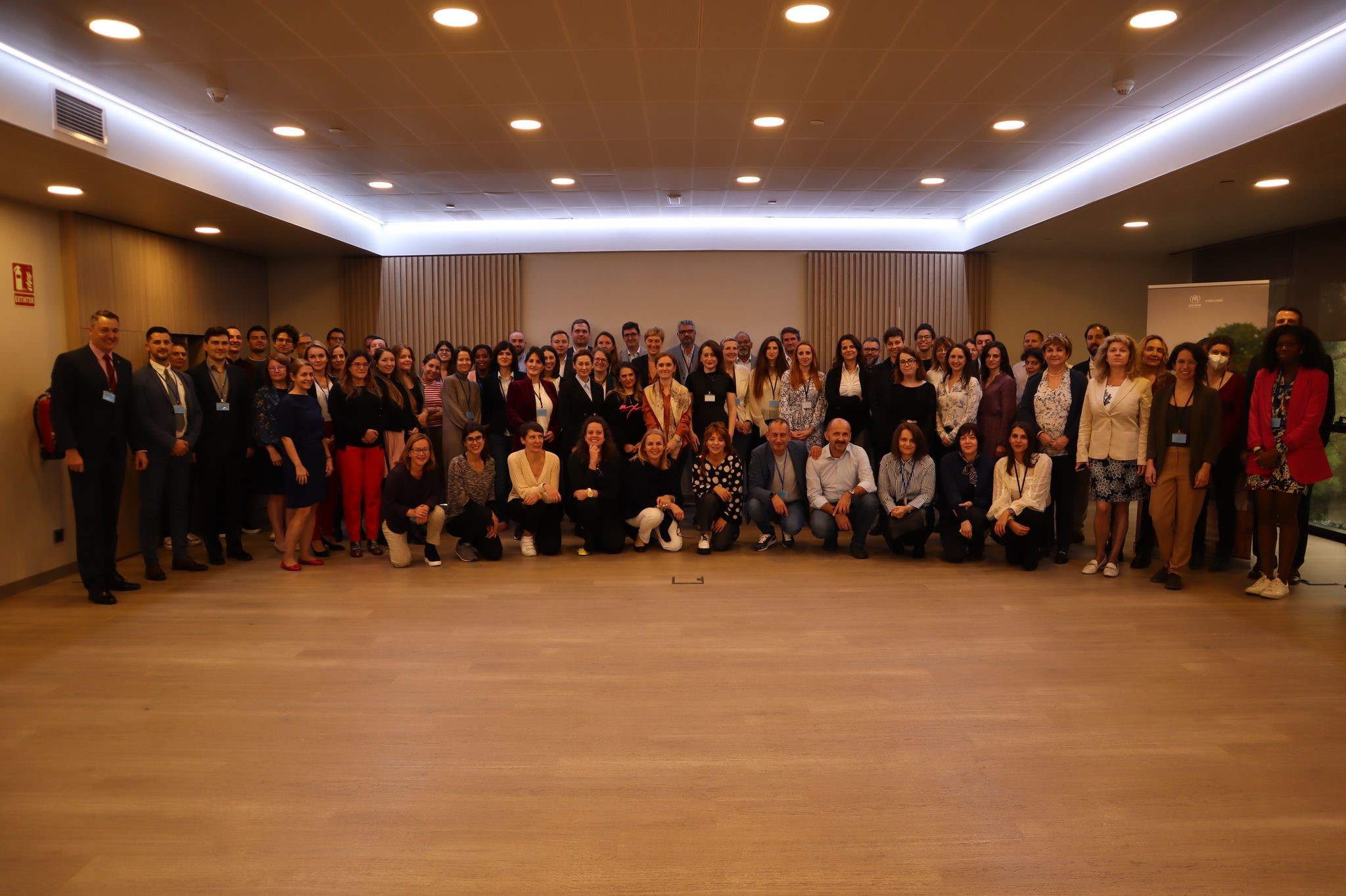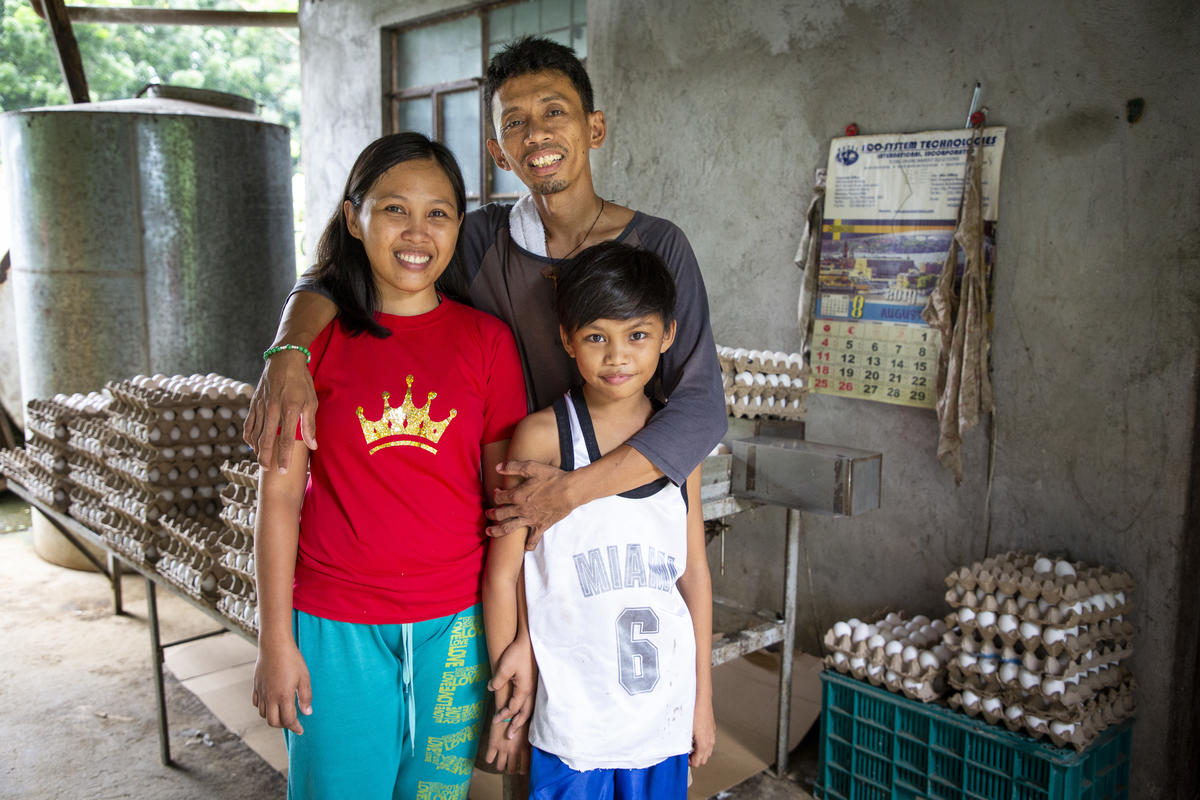Birth certificate programme secures Afghans' identities
Birth certificate programme secures Afghans' identities

PESHAWAR, Pakistan, Feb. 6 (UNHCR) - In a joint effort to ensure that newborn Afghan refugees don't have identity problems later in life, the UN refugee agency and Pakistani authorities are distributing birth certificates in new camps in the country's heavily refugee populated border belt.
The initiative was piloted beginning in mid-2003 by UNHCR's office in southern Pakistan's Balochistan Province as part of a programme to give newborn Afghans a document that protects their nationality as required by international agreements.
The recently expanded programme aims to issue birth certificates to newborn children in all the 15 refugee camps that were set up for Afghans who fled war in Afghanistan in late 2001.
The broadened initiative began late last month at Barkali refugee camp near Peshawar, in Pakistan's North-West Frontier Province, which hosts nine camps established to host Afghans who fled war in Afghanistan in late 2001.
Birth certificates are necessary in many countries to obtain education or medical care, and establish inheritance or the right to property. Crucially, they allow a person to prove his nationality - in the most extreme cases the lack of a birth certificate could result in a person being declared stateless.
"It is extremely important for every child to have a birth certificate; this is the reason we are making a big event of this," Masti Notz, head of the UN refugee agency office in Peshawar, told officials and hundreds of refugees who assembled for the start of the programme in Barkali refugee camp.
"All your children will have something resembling an ID card which they can use if they go back to Afghanistan or if they stay in Pakistan" she said.
The new document records the baby's name and gender, date and place of birth, the father's name and place of origin. It is signed by UNHCR and Project Directorate Health, an organisation linked to Pakistan's Commissionerate of Afghan Refugees that provides medical services under an agreement with UNHCR.
In addition, the Peshawar Consulate of the Islamic Transitional Authority of Afghanistan has agreed to endorse these new certificates of refugees who decide to return to their homeland.
The UN Convention on the Rights of the Child, which has been ratified by 192 countries, requires that all children be registered immediately after birth and have the right to a nationality.
Official support for the new programme was demonstrated by representatives of both the Pakistani and Afghan governments attending the launch ceremony last week in Barkali, a refugee camp of nearly 5,000 people in Bajaur Agency in the rugged Tribal Area along the Afghan border near Peshawar.
Initially the programme will issue birth certificates only to those born over the past year in the refugee camps that were established for those fleeing the 2001 war that unseated the Taliban. So far about 200 have been issued in Barkali camp, while nearly 3,000 have been distributed in Balochistan Province.
It is uncertain whether UNHCR will have the resources to extend the programme to the older camps or to cover any child born before 2003.
Issuing birth certificates to children of Afghan refugees born outside Pakistan's refugee camps would be even more difficult. The number of Afghan children, like the total refugees resident in Pakistan, has never been well documented. While UNHCR estimates there are now about 1.1 million refugees in the 200 refugee camps scattered in Pakistan, the number elsewhere in the country is unknown.
The number of Afghan refugee children born in Pakistan since the crisis began a quarter century ago may number in the millions. Afghan refugees have one of the highest rates of population growth in the world, estimated at more than four percent a year. That would add more than 40,000 children for each million refugees every year - and the refugee population was several million throughout the 1980s and 1990s.
More than 1.8 million Afghans have repatriated from Pakistan since UNHCR and the Afghan authorities began facilitating returns in early 2002.









